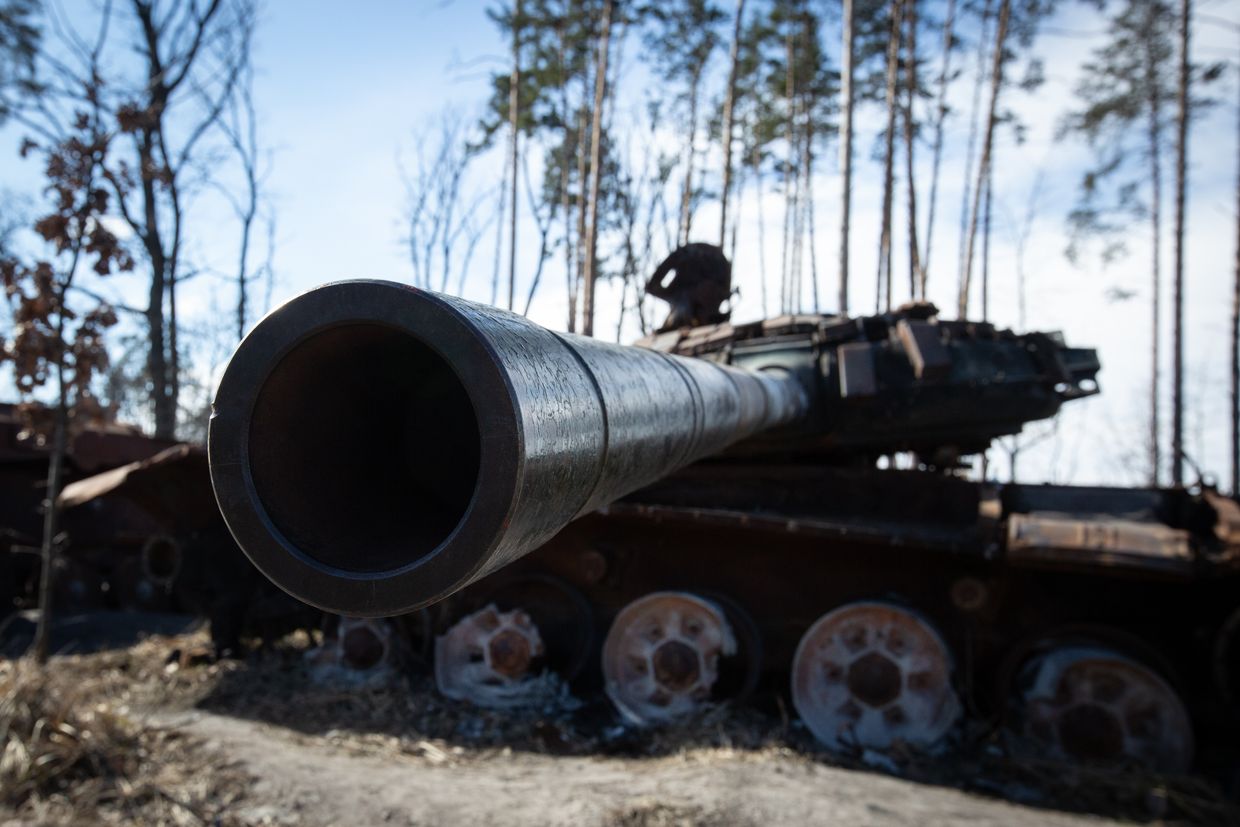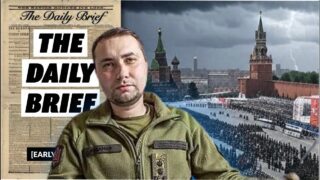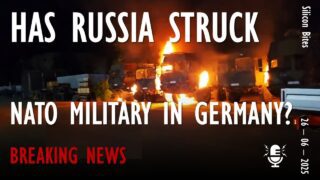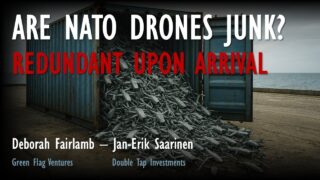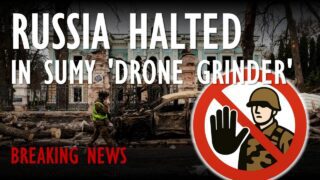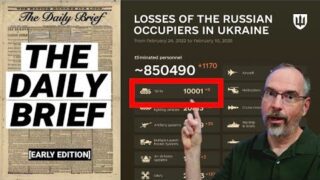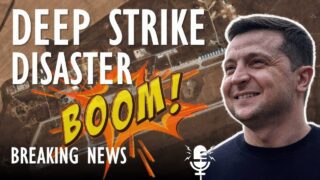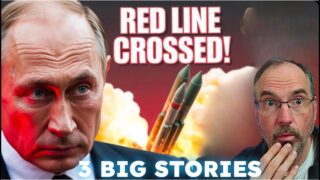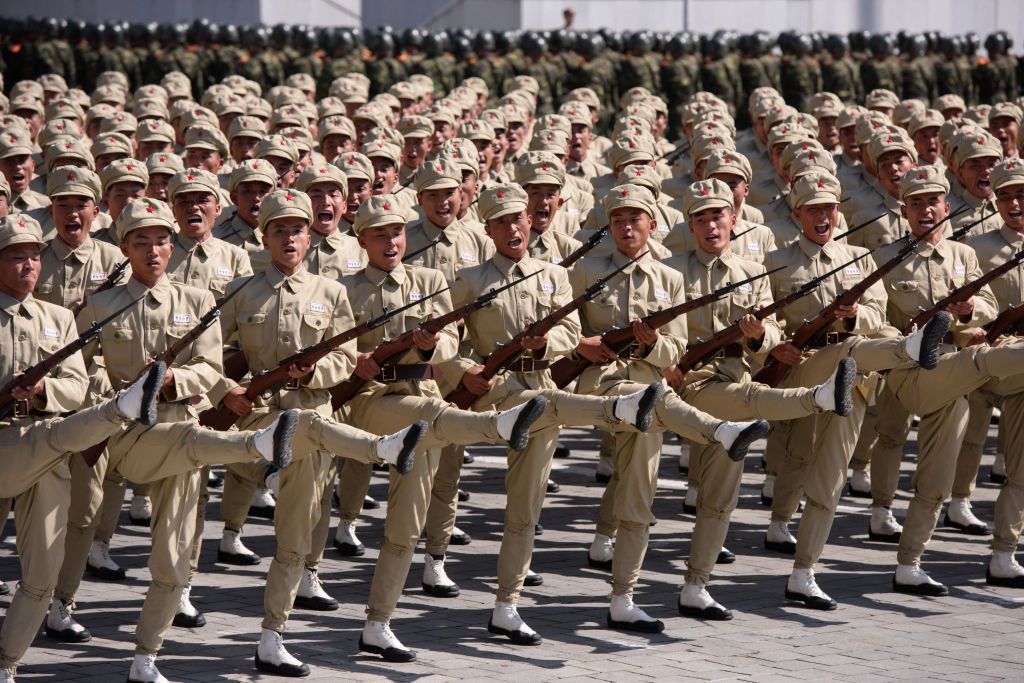
Ukraine war latest: 11,000 North Korean troops will be 'ready to fight' in Ukraine by Nov. 1, Budanov says
Key developments on Oct. 18:
- Budanov says close to 11,000 North Korean troops in Russia, will be 'ready to fight' in Ukraine by Nov. 1
- Ukraine liberates Kharkiv Oblast village key for defense of Kupiansk, military intelligence says
- Biden says West 'cannot let up' support for Ukraine ahead of high-level talks in Germany
- Germany, Netherlands detail new military equipment for Ukraine, including Leopard tanks, air defense systems
- Ukraine improving interceptor drones to counter Russia, Syrskyi says
Close to 11,000 North Korean troops are in Russia and will be "ready to fight" in Ukraine by Nov. 1, Ukrainian military intelligence head Kyrylo Budanov said in comments published by the War Zone on Oct. 17.
Budanov said the first group of 2,600 soldiers will be deployed to Russia's Kursk Oblast, where Ukraine began a cross-border incursion in August and still holds significant swathes of territory. The troops will be using Russian equipment and ammunition, but further information is currently unknown.
"We don't have the full picture right now," Budanov said.
Concerns about North Korea's direct involvement in Russia's full-scale war have reached a fever pitch in recent days.
Speaking at a press conference in Brussels on Oct. 17, President Volodymyr Zelensky said that Russia is planning to train and engage not only infantry but also North Korean specialists in various branches of the military.
"We know about 10,000 soldiers from North Korea they are preparing to send to fight against us," he added.
The Kyiv Independent contacted the President's Office to ask about the discrepancy between Budanov's and Zelensky's figures, but had not received a response at the time of publication.
South Korea's National Intelligence Service (NIS) said on Oct. 18 that Pyongyang had recently decided to deploy 12,000 North Korean soldiers, including special forces, to support Russia's war effort. The NIS did not say if the troops had already been sent into the field or where they might be deployed.
At the same time, Pentagon spokesperson Pat Ryder said on Oct. 17 that he "can't confirm whether there are North Korean forces that have gone to Russia" but added that the U.S. would "continue to monitor" the situation.
If the reports were true, it would "demonstrate the situation that Russia finds itself in, the dire situation that it finds itself in, in terms of its forces on the battlefield."
"And so it just demonstrates the desperation in terms of identifying additional forces for their military," Ryder added.
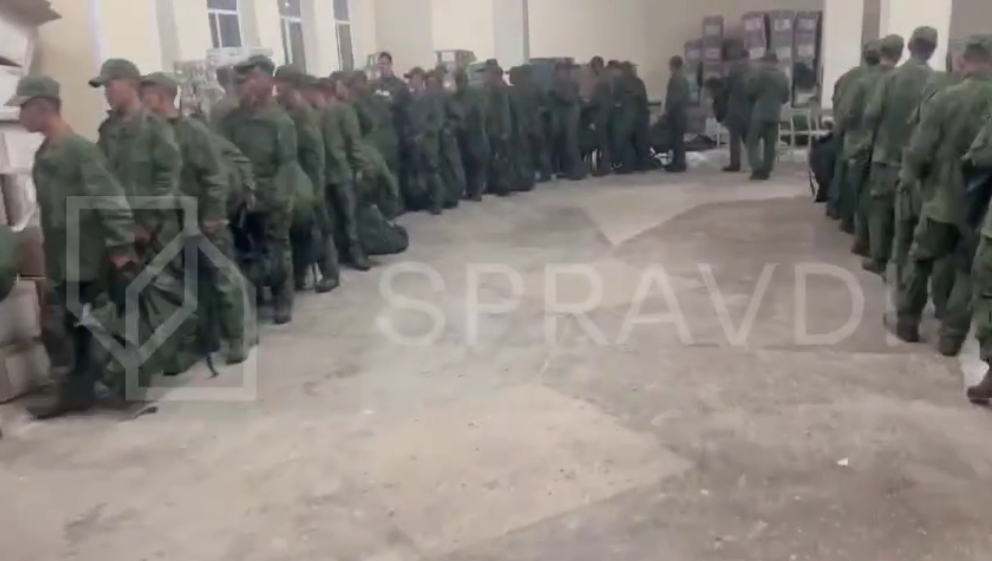

Ukraine liberates Kharkiv Oblast village key for defense of Kupiansk, military intelligence says
Ukrainian forces have liberated and "cleared out" the village of Kruhliakivka in Kharkiv Oblast of Russian soldiers, Ukraine's military intelligence (HUR) reported on Oct. 18.
The operation was carried out from Oct. 7-14 by special forces of the Bratstvo unit with the support of Ukraine's 77th Separate Airmobile Brigade.
"As a result of the operation, the enemy was driven out of the settlement, and the occupiers' routes of movement were mined," the agency said.
HUR described Kruhliakivka as important for the defense of Kupiansk, a crucial strategic town in Kharkiv Oblast, located just 40 kilometers from the Russian border.
Recaptured by Ukraine in 2022, Kupiansk faced mounting pressure from Russian forces over the past months following Moscow's renewed Kharkiv offensive. Russian troops carried out 19 attacks in the sector over the past day, Ukraine's General Staff said.
According to HUR, Russia lost more than a platoon of infantry (usually from 15 to 45 soldiers) during the recent operation. Ukrainian forces also reportedly took over Russian captives, having received "important intelligence data."
"The enemy resisted, tried to counterattack, but was defeated. Intelligence soldiers repelled the occupiers' assault and continued to push the enemy out," the agency added.
Biden says West 'cannot let up' support for Ukraine ahead of high-level talks in Germany
U.S. President Joe Biden urged a continuation of Western support for Ukraine in Berlin on Oct. 18. The president had arrived earlier in the day for high-level talks with the leaders of Germany, the U.K., and France on Russia's full-scale war against Ukraine and the ongoing conflict in the Middle East.
"We cannot let up. We must sustain our support. In my view, we must keep going until Ukraine wins a just and durable peace consistent with the U.N. Charter," Biden said.
The West must "ensure that Ukraine prevails and (Russian President Vladimir) Putin fails and NATO remains strong and more united than ever."
Biden had previously canceled foreign trips to oversee recovery efforts after a series of devastating hurricanes hit the east coast of the U.S.
"Ready to greet old friends and strengthen our close alliance as we stand together for freedom and against tyranny around the world," Biden wrote on X, sharing a picture of his arrival in Berlin.
Biden will first hold bilateral talks with German Chancellor Olaf Scholz and President Frank-Walter Steinmeier before a wider meeting with other leaders.
"The situation on the battlefield in Ukraine, the trajectory of the war, how allies can best support Ukraine will be a subject of conversation," a senior U.S. official said ahead of Biden's trip.
In a speech outside the presidential palace, Steinmeier thanked Biden for his role in helping stabilize the U.S.'s role in NATO.
"When you were elected president, you restored Europe’s hope in the transatlantic alliance literally overnight."
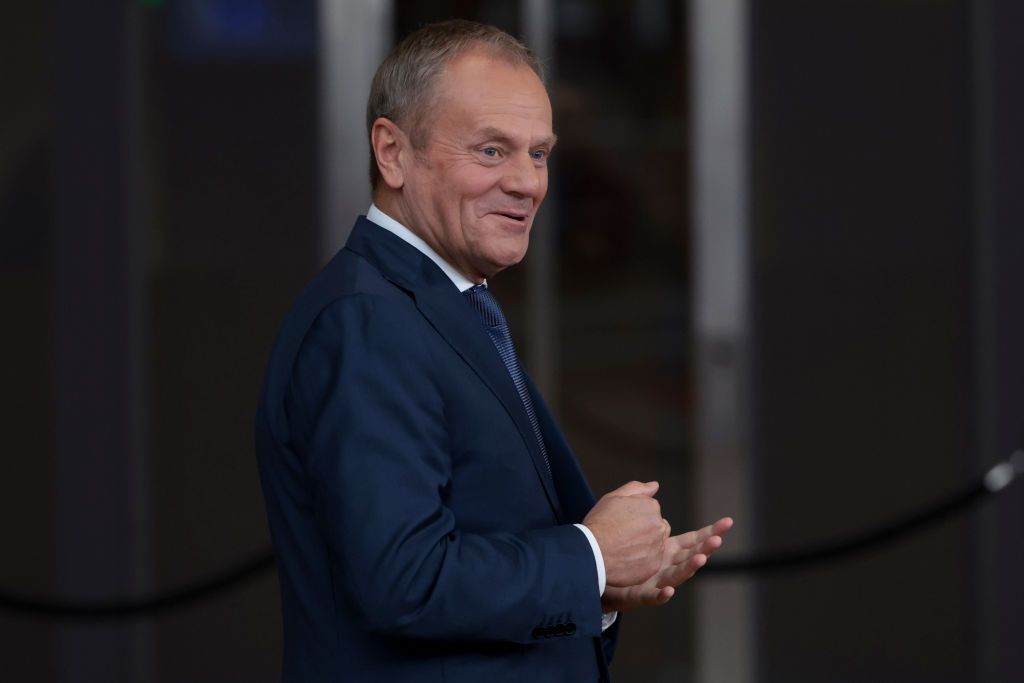

Germany, Netherlands detail new military equipment for Ukraine, including Leopard tanks, air defense systems
Germany and the Netherlands detailed new packages of military assistance on Oct. 17 that have either already been delivered to Ukraine or are on their way soon.
The Netherlands said it had ordered six self-propelled DITA howitzers from the Czech Republic to be sent to Ukraine, as well as an undisclosed number of 152mm artillery shells.
Germany said it had handed over a new package of military equipment, which included eight Leopard 1 A5 main battle tanks, 20 Marder infantry fighting vehicles, four mine-resistant ambush-protected vehicles (MRAP), one IRIS-T SLM air defense system, one IRIS-T SLS air defense system, six Panzerhaubitze 2000 self-propelled howitzers, as well as reconnaissance drones, demining equipment, and tens of thousands of rounds of artillery shells and other ammunition.
The Danish Defense Ministry also announced a new 2.4 billion kroner ($350 million) military aid package for Ukraine on Oct. 18.
The package includes weapons from Denmark's stockpiles, funding for air defense systems with Germany, and contributions to the UK-led International Fund for Ukraine (IFU), according to the statement.
Part of the funds will be used to expand training programs for the Ukrainian military.
"The government is working to make a decision on further procurement directly from the Ukrainian defense industry, including in the area of drones," Danish Defense Minister Troels Lund Poulsen said.
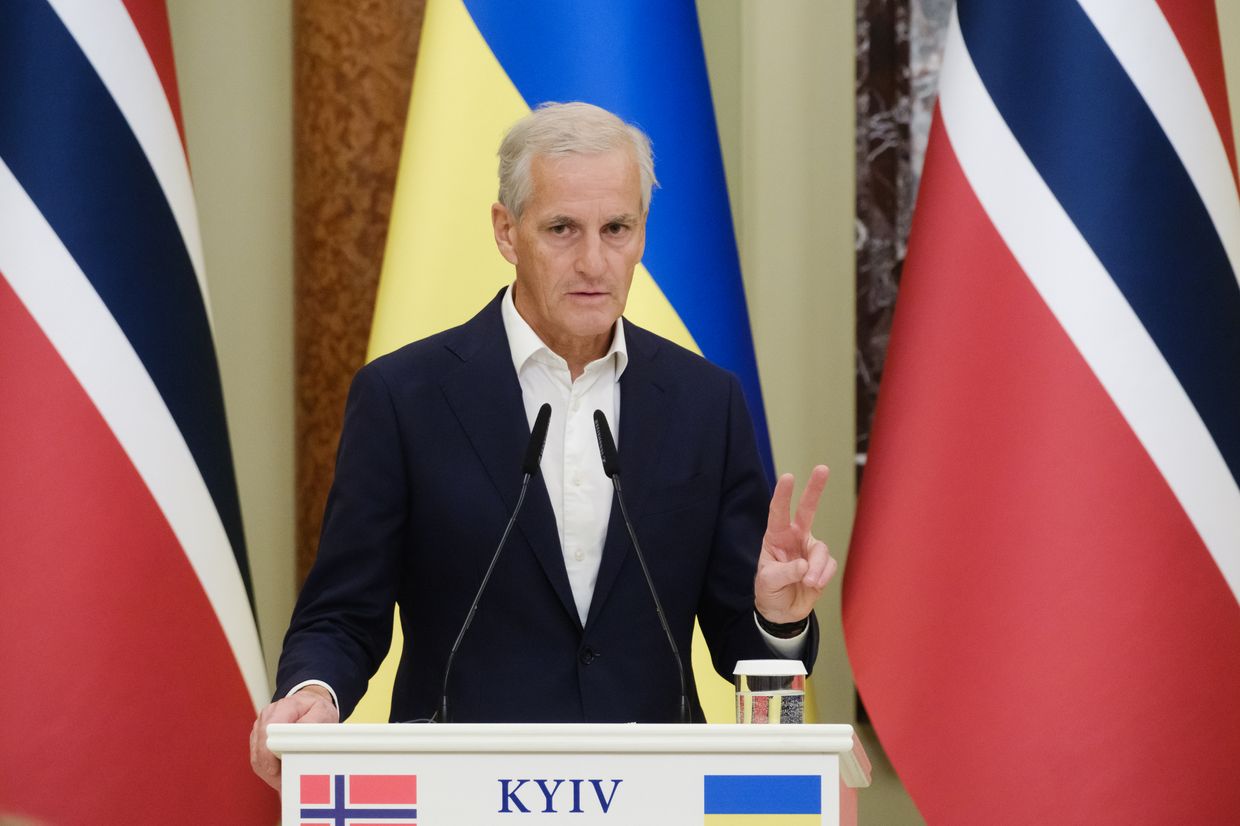

Ukraine improving interceptor drones to counter Russia, Syrskyi says
Ukraine is improving its interceptor drones as a substitute for anti-aircraft missiles to counter Russian drone attacks, Commander-in-Chief Oleksandr Syrskyi said on Oct. 18.
Syrskyi met with top commanders of Ukraine's Armed Forces to discuss implementing innovations in the country's defense sector. He described Ukraine as the leader in the development of interceptor drones.
Throughout Russia’s full-scale invasion, Ukraine and Russia have heavily invested in drone technology, revolutionizing modern warfare. Multiple videos have shown how Ukrainian first-person view (FPV) drones hit Russian reconnaissance drones and other costly equipment on the battlefield.
"My sincere gratitude goes to everyone who implements relevant solutions, assists, trains, and produces drones that intercept enemy UAVs (unmanned aerial vehicles)," the general added.
According to Syrskyi, the air command authorities have also begun to introduce automation systems that can help destroy Russian aerial targets more effectively.
He outlines the protection of critical infrastructure by air defenses as one of the key tasks ahead of winter, as Ukrainian officials warn that Russia may resume strikes on Ukraine's energy sector in the coming months.
"We continue to equip the Air Force with modern electronic warfare systems," Syrsyi said. "This will increase the reliability of protection of facilities that are protected from air strikes."
